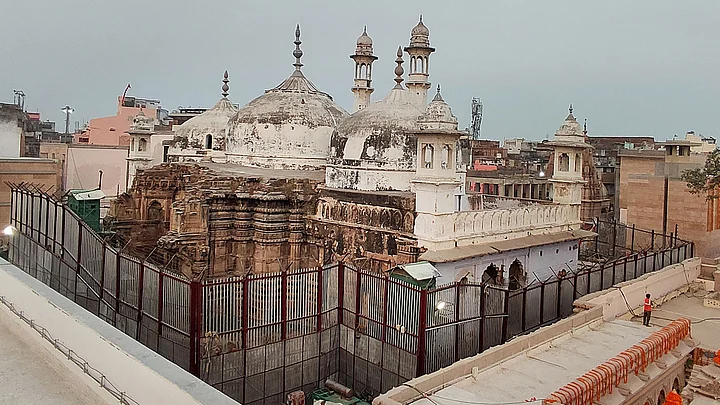The Allahabad High Court on Thursday, 3 August, dismissed a plea by the Anjuman Intezamia Masjid Committee against a Varanasi court order which had initially given the go-ahead for the scientific survey of the Gyanvapi Mosque premises by the Archaeological Survey of India (ASI).
In doing so, the High Court, which had reserved its verdict on 27 July, has paved the way for the scientific survey of the mosque premises.
"Issue of a comminsion is permissible. The Varanasi Court was justified in ordering for ASI survey of the premises. Scientific survey is necessary in the interest of justice, " Allahabad High Court Chief Justice Pritinker Diwaker said, according to LiveLaw.
Survey Details: The survey is expected to determine “whether the present structure was constructed over a pre-existing structure of a Hindu temple."
The Varanasi Court order: Last week, a Varanasi District Court on 21 July, allowed a team from the Archaeological Survey of India (ASI) to begin the survey of the Gyanvapi mosque premises (except the 'Wazukhana,' which is an ablution pond where worshippers wash themselves before praying), on Monday, 24 July. The court directed the ASI to submit the report of the survey before 4 August.
In the Supreme Court: But, the mosque management committee moved the Supreme Court against the Varanasi court's order allowing the inspection.
While the top court, on Monday, 24 July, asked the petitioners to approach the High Court, it did put an interim stay of two days (till 26 July) on the survey to allow them enough time.
The High Court hearing: The mosque committee then moved the Allahabad High Court on 25 July.
During the hearing, the Mosque committee primarily argued that once the scientific survey is conducted, the entire Mosque Premises might be adversely affected. They also raised concerns over the fact that the ASI was not a party to the suit. Despite this, the District Judge directed the ASI to survey the mosque premises (except the 'Wazukhana').
Background: The case pertains to a plea filed by five Hindu women seeking permission for the worship of Hindu deities whose idols were allegedly found to be located on an outer wall of the Gyanvapi mosque.
